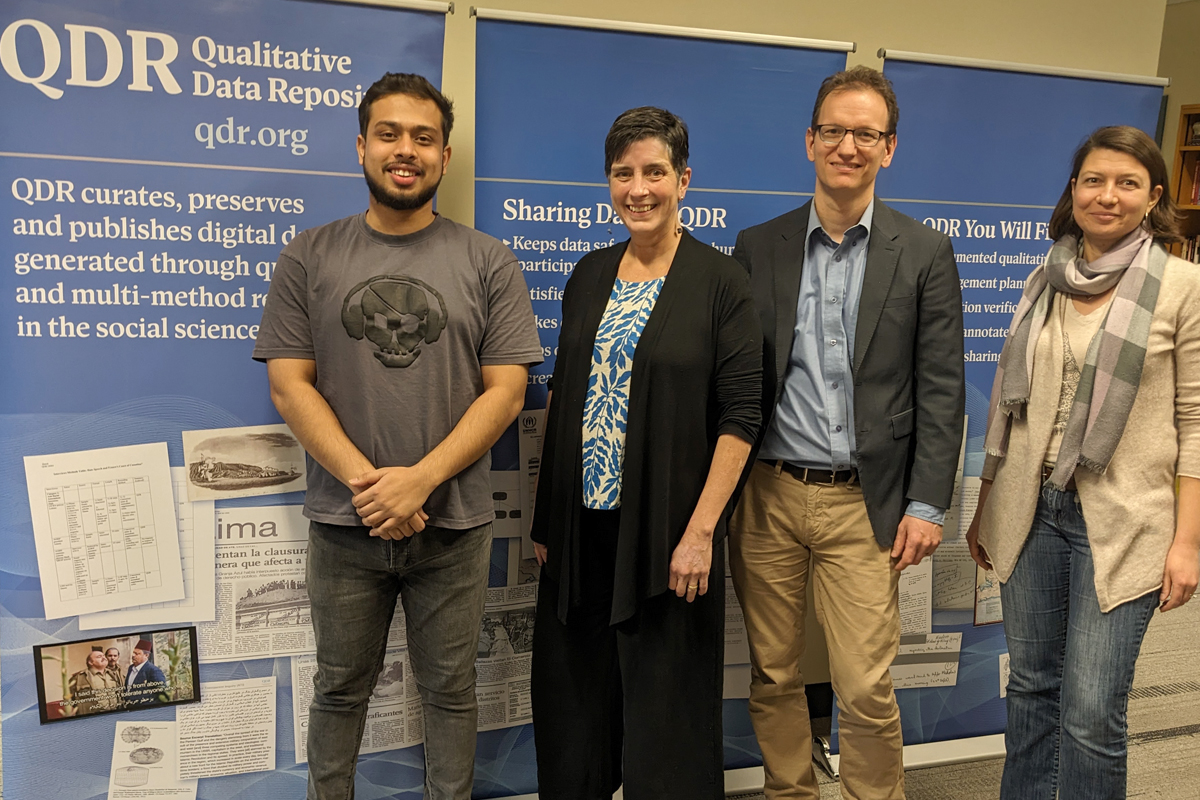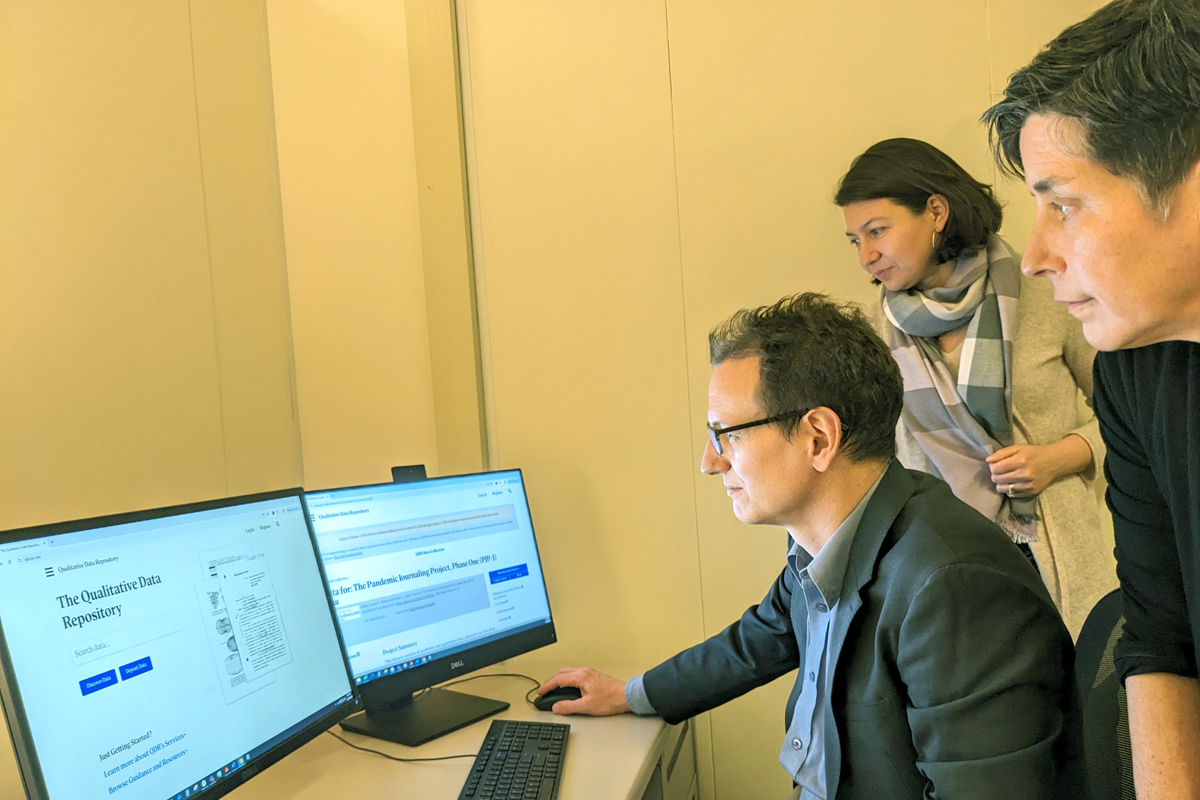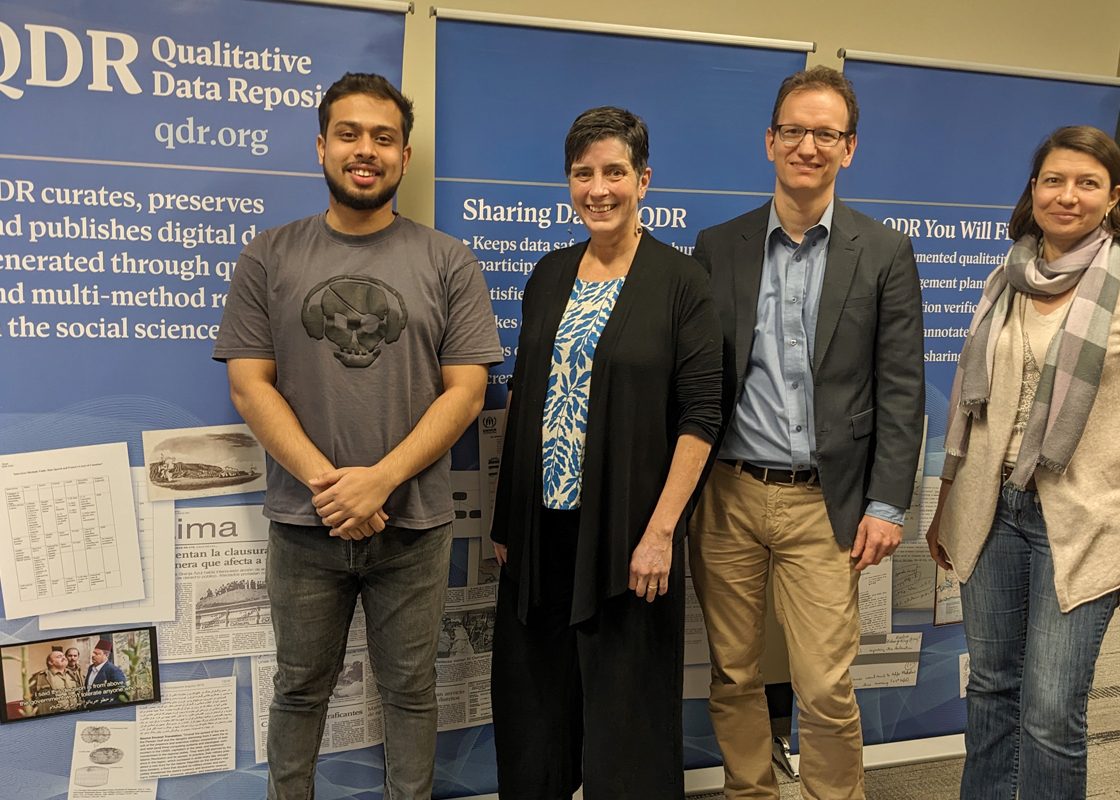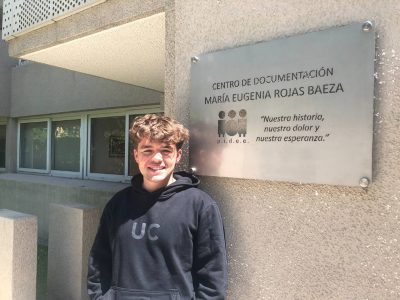Qualitative Data Repository: A National Resource for Managing Qualitative Data Across the Social Sciences
Syracuse University is home to the only data repository in the nation dedicated to the archiving, storage and sharing of digital data collected through qualitative and multi-method research in the social sciences and related disciplines.
The Qualitative Data Repository (QDR), established in 2014, provides social scientists with an avenue to share qualitative data for the benefit of others.
“QDR is a valuable national resource for managing complexities of qualitative data across the social sciences. Qualitative data presents unique challenges for its archival, sharing, citation and management,” says Duncan Brown, vice president for research. “QDR has been at the cutting edge of research in making qualitative data broadly accessible for more than a decade. As the leader in the field, their activities set the standard for best practices and are teaching others how to manage qualitative data.”

The QDR was created by qualitative methods expert Colin Elman, professor of political science in the Maxwell School of Citizenship and Public Affairs. It is now led by Sebastian Karcher, director of the University’s Center for Qualitative and Multi-Method Inquiry and research associate professor of political science.
“This isn’t just an archive. We’re an active place of cutting-edge social science research and constantly engage with other qualitative data researchers. We’re interested in what the next generation of qualitative data looks like, what avenues it opens, how it can be challenging and can be shared ethically,” Karcher says. “There are a lot of questions we’re actively working on and we love to be involved in conversations with others who are doing that work.”
Working with Karcher are Carole Palmer and Nic Weber, University of Washington collaborators and co-technical directors; Dessi Kirilova, senior curation specialist; Derek Robey, the 2023-25 postdoctoral fellow; and Christiane Pagé, data specialist for qualitative research. Three Maxwell School graduate students typically assist in the center. Thirty-five prominent U.S. universities are institutional members.
Karcher says QDR stores data from national and international researchers. Holdings have recently expanded to include more qualitative health data, which has been especially helpful for researchers since the COVID-19 pandemic. “That data helps researchers who are trying to figure out how people relate to medical science and assess questions such as not just what makes drugs work, but also what makes people want to get vaccines,” Karcher says.

The repository assists researchers in many ways, Karcher says. “If you’re teaching and engaging in research, there’s likely something here in your area to work with and benefit from. If you are doing qualitative research yourself, more and more funders are expecting grantees to share the data they collect, so we can be a help. That isn’t always easy to do, and there are practical and ethical challenges, but we’re experienced and quite good at it. We are also available to read grant applications to offer data-related pointers.”
Karcher says the staff is excited about the types of data the QDR has received. “Some of the items getting the most use are transcripts of interviews, which are very hard to come by. Being able to get real, qualitative data for research reuse and for instruction is incredibly valuable. It’s important to researchers who are doing this work. We are also getting tons of views from classrooms. There are students in Amsterdam, in Cardiff and at other universities around the world who are learning from instructors who are using our repository to teach qualitative methods.”
Some data sets deposited in the QDR are:
- Two years’ worth of online journal entries collected by medical anthropologists during the COVID-19 pandemic containing 30,000 data points and 1,500 pieces of imagery, audio and video diaries, photos and Snapchat posts.
- Almost 2,000 human rights reports from the Northern Island Research Initiative, cataloging conflicts with police and human rights violations that took place from 1968 to 1998 in Northern Ireland.
- Campaign videos from Latin America elections strategies (“Presidential Campaign Advertising in Chile, Brazil, and Peru”).
- Notes from interviews with sex workers and program staff used by Corey Shdaimah, Daniel Thursz Distinguished Professor of Social Justice at the University of Maryland School of Social Work, to assess alternative criminal justice models (“Problem-Solving Courts, Street Level Bureaucrats, and Clients as Policy Agents in a Prostitution Diversion Program”).
Shdaimah says she was pleased to have such a reliable resource. “When researchers collect qualitative data, the people who share their stories know their information will be made use of. I felt very good about having a place to deposit data that I knew was secure and that would protect the confidentiality of my respondents. It’s also been important to have people from different disciplines see my work there. Some reached out and we’ve had conversations about the data that have been fruitful to me as a researcher.”
Senior Research Data Management Consultant Sophia Lafferty-Hess of Duke University Libraries has referred researchers to the QDR and has worked with its staff for data management and sharing training. “One of the key outcomes for our researchers is easier compliance with funder and journal data sharing policies,” Lafferty-Hess says. “QDR has provided reviews of data management and sharing plans as a solution for those whose data may have some sensitivities. It has been an advocate for participants and a partner for researchers to build ethical approaches to data sharing,” she says.
Paul Bern, Syracuse University Libraries’ data services librarian, underscores the repository’s uniqueness. “The QDR is really quite useful and important because it’s one of the very, very few data repositories that specializes in qualitative data. Its uniqueness makes QDR invaluable. The people there are knowledgeable, helpful, friendly and respected all over the world.”


